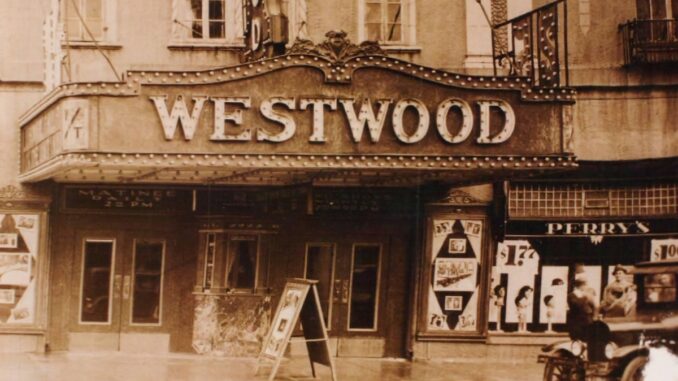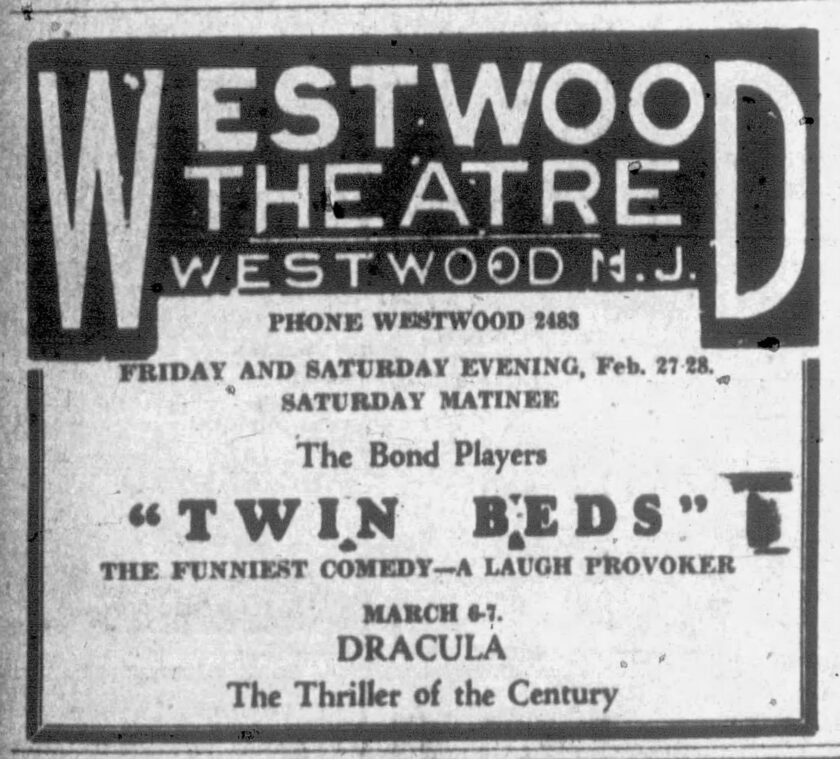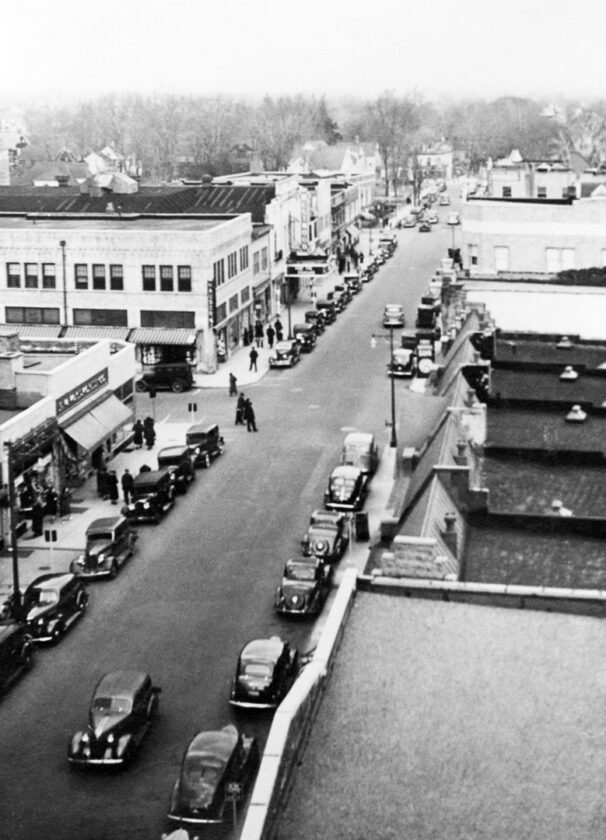
WESTWOOD—Hearing someone shout Fire! in a crowded theater is such cause for panic that this scenario is often used as an example of the limits of free speech. It was just that sort of chaos that Westwood’s fire chief hoped to avoid with his quick actions back in the winter of 1931.
“The quick-witted, level-headed action of Chief Karl Robbins averted what might have been a serious panic in the Westwood Theatre on Friday evening of last week,” the Westwood Chronicle reported on March 7, 1931.
On the evening of Friday, Feb. 27, there was a packed house at the Westwood Theatre. Not to be confused with the Pascack Theater around the corner on Center Avenue, Westwood Theater stood on Westwood Avenue about where Tons of Toys is now. It showed community plays, vaudeville acts, and films—silent ones at first, and then “talkies” (movies with sound). There was a resident acting troupe called The Bond Players that presented a new show every weekend. On that particular Friday they were performing an uproarious comedy, “Twin Beds.”
The Ridgewood News reported of the show, “That well-groomed, debonair, slightly mad farce ‘Twin Beds’ will be presented by the Bond Players, as their fourth and funniest offering in a month of mirth. Now in their second season at the Westwood Theatre, their friends of last year are flocking to see them and bringing their friends.”

Around 9 p.m., as the performance went on inside the theater, Chief Robbins of the Westwood Fire Department was on Westwood Avenue talking with some friends. Their conversation was cut short when Westwood’s fire siren started going off. A man ran up to the chief to tell him that the fire was in the Westwood Theatre. Robbins and former Fire Chief Henry Volz hopped in the chief’s car and drove the short distance up the road.
One of the members of the theater staff met the chief in the lobby and told him that the fire, which was in the projection booth, was a small one and could be easily controlled.
The Westwood Chronicle explained, “Realizing that he would be able to handle the blaze with the extinguishers that are part of his car’s equipment, Chief Robbins sent Volz to the street to keep the apparatus from stopping in front of the theater. He knew that the sound of the engines would be heard inside by the patrons who were enjoying the show, and would undoubtedly cause a panic.

“Ex-chief Volz went to the street and motioned the drivers of the apparatus to keep on going. After they had traveled a safe distance from the theater, they were instructed to return to the fire house.”
The fire was extinguished without the audience ever knowing what had happened, until they heard about it on the street or read it in the paper.
The local newspaper lauded the fire chief, with the Westwood Chronicle proclaiming, “Quick thinking of this nature is of more value to a man who heads a body of ‘smoke-eaters’ than quick action, in many instances.
“In this case, Chief Robbins blended quick thinking with quick action and secured a very desirable and commendable result.”
Robbins lived on Lexington Avenue and was a district safety engineer for PSE&G. He had moved to Westwood in 1917.
— Kristin Beuscher is president of the Pascack Historical Society
